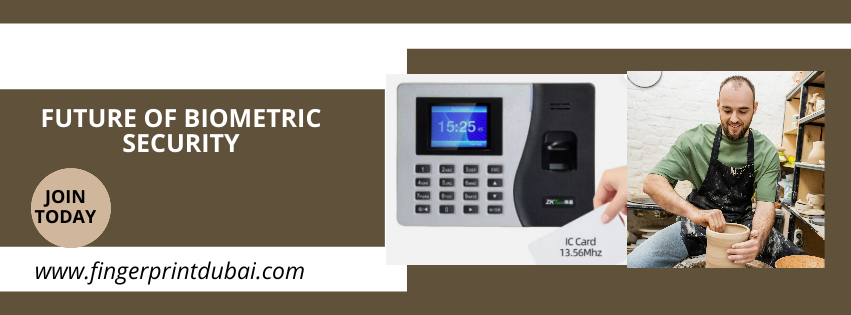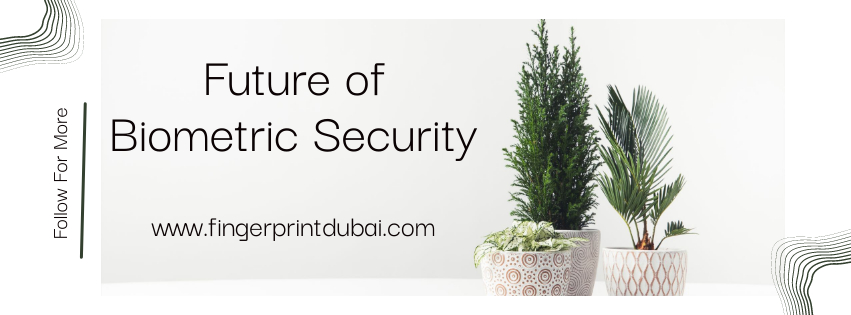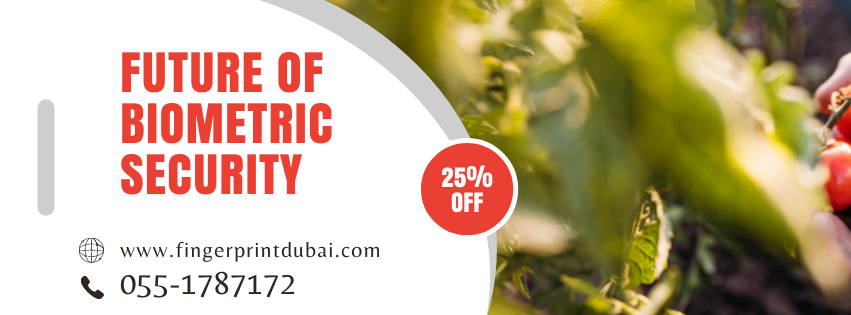Future of Biometric Security
The Future of Biometric Security in the UAE: A Deep Dive into What’s Next

The UAE is a hotbed for technological innovation, and biometric security is no exception. We’re seeing a rapid adoption of these technologies, transforming everything from banking to border control. So, what does the future hold for biometric security in the UAE? Let’s explore.
Facial Recognition Everywhere You Look
Imagine walking into a store, and the payment happens seamlessly because your face is recognized. That’s the future of biometric security in the UAE. Facial recognition is becoming increasingly sophisticated, moving beyond simple identification to personalized experiences. Think targeted advertising based on your preferences, all thanks to facial recognition technology.
Beyond Passwords: Biometrics for Seamless Authentication
Remember those clunky passwords? PIN numbers becoming a thing of the practice of past decay. The future of biometric security in the UAE points towards a world where your unique biological traits are your keys. Fingerprints, iris scans, and even voice recognition are stepping in, making authentication smoother and more secure.
The Rise of Multimodal Biometrics
Why settle for one biometric when you can have many? The future of biometric security in the UAE will likely see the rise of multimodal biometrics. This means combining different biometric factors, like facial recognition and fingerprint scanning, for an extra layer of security. It’s like having multiple locks on your door – much harder to break in.

Biometrics in Banking: Securing Your Finances
The UAE’s banking sector is embracing the future of biometric security. Imagine authorizing transactions with a glance or a touch. This not only enhances security but also makes banking more convenient. Biometric authentication is set to become the norm in the UAE’s financial landscape.
Biometrics at the Border: Faster and More Secure Travel
Say goodbye to long immigration lines. The future of biometric security in the UAE promises smoother and faster border control. Facial recognition and iris scans can quickly verify identities, making travel more efficient and secure.
The Internet of Things (IoT) and Biometrics: A Connected Future
As our homes and devices become more connected, so does the need for robust security. The future of biometric security in the UAE extends to the IoT. Imagine your smart home recognizing your voice and adjusting the lighting and temperature accordingly. Biometrics will play a crucial role in securing this interconnected world.
Addressing Privacy Concerns: The Ethical Side of Biometrics
With great power comes great responsibility. As biometric technology becomes more prevalent, it’s crucial to address privacy concerns. The future of biometric security in the UAE must involve robust data protection measures and clear regulations. Transparency and user consent are paramount.

Biometrics and Healthcare: Personalized and Secure Care
The future of biometric security in the UAE’s healthcare sector is bright. Imagine accessing your medical records with a simple fingerprint scan. Biometrics can streamline patient identification, prevent fraud, and ensure the privacy of sensitive medical information.
The Future of Biometric Security in the UAE: A Collaborative Effort
The evolution of biometric security in the UAE requires collaboration between governments, businesses, and individuals. By working together, we can ensure that these technologies are implemented responsibly and ethically, maximizing their benefits while minimizing the risks.
Staying Ahead of the Curve: Continuous Innovation
The future of biometric security in the UAE is constantly evolving. Continuous innovation is key to staying ahead of potential threats. Research and development in areas like artificial intelligence and machine learning will play a vital role in shaping the future of biometric security. The Future of Biometric Security in the UAE is rapidly evolving, with the country at the forefront of adopting cutting-edge technologies to enhance security and streamline processes. Here’s a look at the key aspects shaping this biometric revolution:
Facial Recognition Seamless Travel Experience
Frictionless Airport Journeys, Imagine breezing through Dubai International Airport without ever pulling out your passport. The UAE is making this a reality with its “Travel without Borders” AI-powered facial recognition cameras will scan travelers on the move, confirming their biometric data and officially registering their arrival or departure.
No more queues at passport control – just a smooth, seamless journey from curb to gate.
Biometric Face Identification Boarding
Say goodbye to boarding passes and hello to your face as your ticket.
UAE airports are implementing facial recognition technology for boarding procedures.
A quick glance at a camera is all you’ll need to step onto your flight.
This not only speeds up the boarding process but also enhances security by ensuring only authorized passengers can board.

Palm & Fingers Enhanced Security Measures
Multi-Modal Biometrics, The future of biometric security in the UAE isn’t limited to just one type of biometric data. Airports and secure facilities are combining fingerprint, facial recognition, and iris scanning for unparalleled security. This multi-layered approach makes it incredibly difficult for unauthorized individuals to gain access.
AI-Powered Biometric Threat Detection
UAE law enforcement is leveraging cutting-edge biometric technology to prevent and solve crimes. Advanced systems can identify potential threats in real-time by analyzing biometric data against watch lists. This proactive approach to security is helping to make the UAE one of the safest countries in the world.
Biometric & Financial Sector Revolution
Biometric Banking, UAE banks are embracing biometric authentication for secure transactions and account access. Imagine authorizing a large transfer with just your fingerprint or a selfie. This technology not only enhances security but also provides a frictionless banking experience for customers.
Palm Vein Payment Systems
The UAE is set to introduce palm vein scanning for payments in its transport sector.
This contactless payment method is both hygienic and highly secure.
Soon, you might be able to pay for your metro ride or shopping with just a wave of your hand.
Smart City Integration & Biometric Access Control
Office buildings in Dubai are adopting sophisticated biometric access control systems.
Employees can enter secure areas using fingerprints, facial recognition, or iris scans.
This technology enhances security while eliminating the need for easily lost or stolen access cards.
Thumb Impression UAE Pass
The UAE Pass is becoming the universal digital identity for accessing government and private sector services. With facial recognition authentication, citizens and residents can securely access a wide range of services with just their face. This integration of biometrics into everyday life showcases the UAE’s commitment to a digital future.
Privacy and Data Protection by Fingerprint authorization
Robust Cybersecurity Measures, as biometric data becomes more prevalent, the UAE is investing heavily in cybersecurity to protect this sensitive information. Advanced encryption and secure storage protocols are being implemented to safeguard biometric databases. The country is also developing strict regulations around the collection, use, and storage of biometric data.
Eye/IRIS Ethical Considerations
The future of biometric security in the UAE also involves addressing Eye/IRIS ethical concerns. Policymakers are working on frameworks to ensure the responsible use of biometric technology. ABM Innovative includes considerations for data privacy, finger prints consent, and the potential for digitalization in biometric systems. The future of biometric security in the UAE is not just a technological revolution – it’s a reimagining of how we interact with our environment. From airports to banks, offices to public transport, biometrics are set to become an integral part of daily life in the UAE.
As the country continues to innovate and invest in this field, we can expect to see even more groundbreaking applications of biometric technology in the years to come.
The UAE’s vision of a secure, efficient, and technologically advanced society is being realized through the power of biometrics, setting a benchmark for the rest of the world to follow.

Biometric Access security in Dubai
Biometric security has been rapidly evolving in recent years, with the UAE at the forefront of this technological advancement. With the increasing need for secure authentication methods, biometric security has become a crucial tool in safeguarding personal and confidential information. The UAE has been investing heavily in biometric technology to enhance security measures across various sectors, including financial services, healthcare, aviation, and government agencies.
Advantages of biometric fingerprint security
One of the key advantages of biometric security is its unique ability to accurately verify individuals based on their distinctive physical or behavioral traits. This includes fingerprint scans, iris recognition, facial recognition, voice verification, and even heartbeat biometrics. These biometric identifiers are nearly impossible to replicate, making them highly secure and reliable for authentication purposes.
Access control systems in Dubai government
In the UAE, biometric security measures are being implemented in various applications, such as access control systems in government buildings, immigration checkpoints at airports, and online banking services. By utilizing biometric data, organizations can enhance security measures and prevent unauthorized access to sensitive information.
The future of biometric security in the Dubai looks promising, with the government and private sector investing in advanced technologies to combat cyber threats and identity theft. Biometric authentication is expected to become the standard method of verifying identity, replacing traditional password-based systems that are vulnerable to hacking and data breaches.
Implementation of biometric attendance in Dubai
The implementation of biometric attendance technologies, such as facial recognition and iris scanning, has revolutionized the way individuals are verified and authenticated. These technologies are not only more secure but also more convenient for users, as they eliminate the need to remember complex passwords or carry physical identification documents. With the rise of smart devices and digital platforms, the demand for biometric security solutions is expected to grow exponentially in the UAE. Mobile biometrics, such as fingerprint and facial recognition, are already being adopted by banks and mobile operators to enhance the security of online transactions and improve customer experience.
UAE government & use of Biometric
The UAE government has been proactive in promoting the use of biometric technology, with initiatives such as the Emirates ID card, which contains biometric data of residents for identity verification purposes. This has streamlined the process of accessing government services and reduced the risk of identity theft and fraud.
As biometric technology continues to advance, new forms of biometric authentication are being developed, such as gait recognition and vein pattern recognition. These technologies are expected to further enhance the security of sensitive information and provide more robust authentication mechanisms for users in the UAE.
Despite the numerous benefits of biometric security, there are concerns about privacy and data protection. Biometric data is highly sensitive and must be stored and managed securely to prevent unauthorized access or misuse. The UAE government has implemented strict regulations to ensure the protection of biometric data and uphold individual privacy rights.
FAQs: The Future of Biometric Security in Dubai, Sharjah, Ajman
Q: How secure is biometric finger print authentication?
A: Biometric finger print authentication is generally considered more safe & secure than traditional methods like passwords. However, no automated human design system is completely bugs & fool proof. The future of biometric security in the UAE will likely see the development of even more robust and resilient systems.
Q: What are the privacy implications of biometric security?
A: Biometric data is sensitive information, and its collection and storage raise privacy concerns. The future of biometric security in the UAE must include strong data protection measures and clear regulations to safeguard individual privacy.
Q: What are some examples of biometric technologies?
A: Some common examples of biometric technologies include facial recognition, fingerprint scanning, iris scanning, voice recognition, and vein recognition. The future of biometric security in the UAE will likely see the emergence of even more innovative biometric technologies.
Q: How will biometrics impact our daily lives?
A: Biometrics will likely become increasingly integrated into our daily lives, making everything from payments to travel more seamless and secure. The future of biometric digital security in Dubai promises a more convenient and personalized experience.
Q: What is the future of biometric security in Dubai in a corporate nutshell?
A: The future of biometric security in Dubai is bright, with the potential to revolutionize various sectors. However, it’s crucial to address privacy concerns and ensure responsible implementation to maximize the benefits of these technologies.
In conclusion,
The future of biometric security in the UAE is promising, with advanced technologies driving innovation and improving security measures across various sectors. As biometric authentication becomes increasingly prevalent in daily life, the UAE is well-positioned to lead the way in adopting and leveraging these technologies to enhance security and protect individuals’ identities. By investing in biometric security solutions, the UAE can achieve higher levels of security, efficiency, and convenience for its residents and businesses
Tags In
4th St, Al Quoz Cemetery, Oasis Mall, Waha Street, Dubai UAE
Email : info@fingerprintdubai.com
Tell : (+971) 052 5571309

